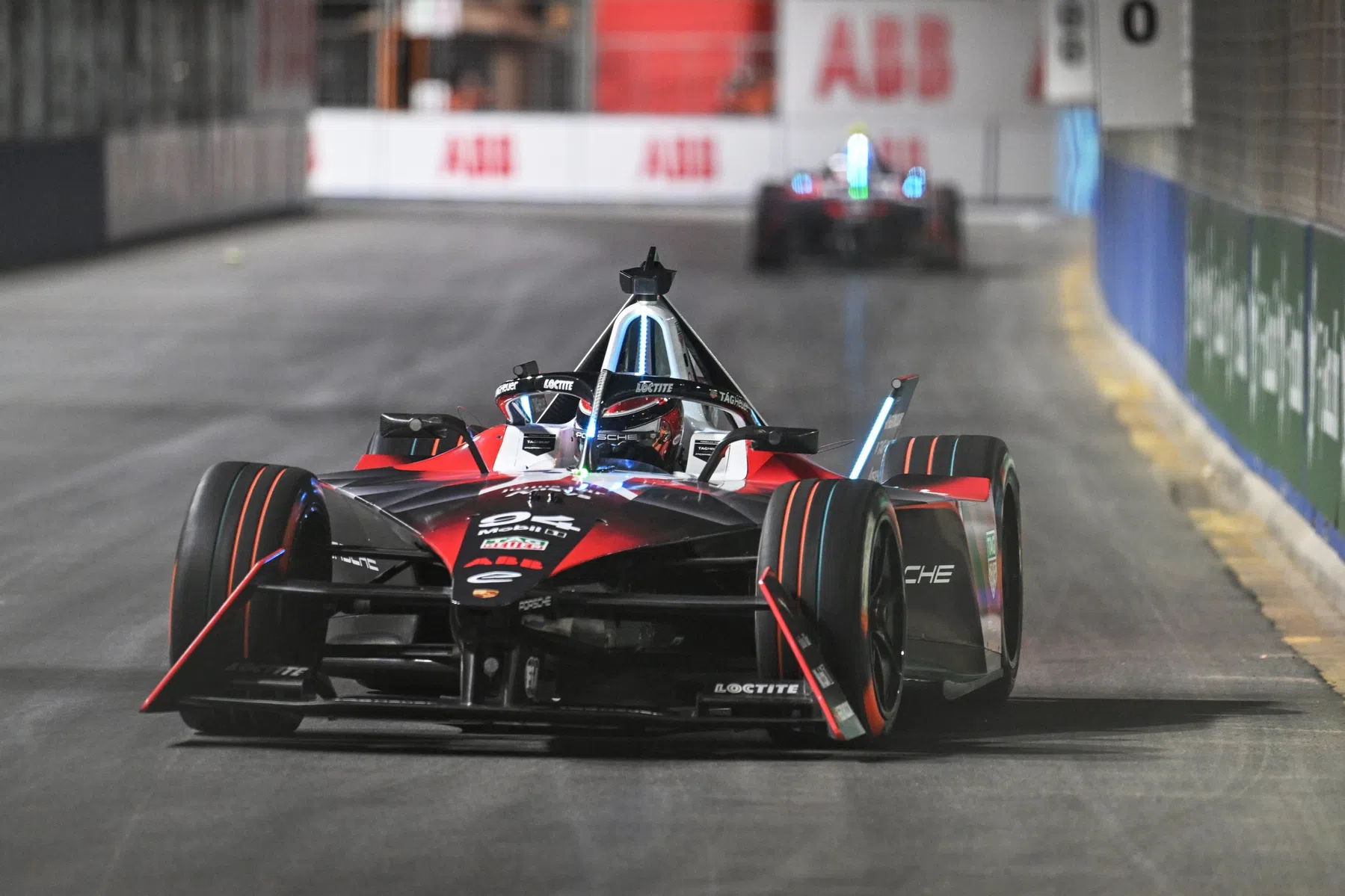Mediabank Formule E
General

Former F1 drivers shine in Formula E qualifying
The first row for the E-Prix of Sao Paulo is formed by two former Formula 1 drivers. In the final qualifying session of Formula E's fourth race, Pascal Wehrlein was the best, ahead of Stoffel Vandoorne. The difference between the two was two thousandths.
In Sao Paulo, the drivers were divided into two groups of 11. They had 12 minutes to set a time that would put them among the fastest four in their group. After that, those drivers were allowed to advance to the so-called duels, in which they determined who got on pole via a knockout system.
Cassidy and De Vries quickly eliminated
However, the first group, which included Nick Cassidy (championship leader), his Jaguar teammate Mitch Evans, Nick de Vries, Robin Frijns, Stoffel Vandoorne and Jean-Éric Vergne, had to go back inside after only five seconds. This was because a large balloon had landed on the track and obviously had to be removed first.
After the short delay, Cassidy missed out on the elimination laps by 0.011. Vergne, Vandoorne, Evans and the surprising Müller did move on. From the second group, Porsche driver Wehrlein, Bird (McLaren), Mortara (teammate with De Vries at Mahindra) and fastest man Max Günther qualified for the last eight. The latter receives a 20-spot grid penalty for the race later in the day due to a gearbox replacement. On top of that comes a 20-second time penalty because Günther also had the inverter replaced.
Vandoorne shows speed
In the quarterfinals, Vandoorne surprisingly eliminated Evans. The two Jaguars were expected to start at the head of the field beforehand, but they started from the sub-top and middle of the field. In the second quarterfinal, Vergne drove his lap alone, as Müller appeared to have damage to his ABT Cupra after a tap against the wall in the group stage. Pascal Wehrlein and Günther also made it to the last four.
In an internal DS Penske duel between Vergne and Vandoorne, the Belgian qualified for the final. In it, Vandoorne was up against another ex-F1 driver: Pascal Wehrlein. The German eventually took the pole in an exciting final, in which the difference was particularly small: two-thousandths of a second.
Starting grid ePrix Sao Paulo

